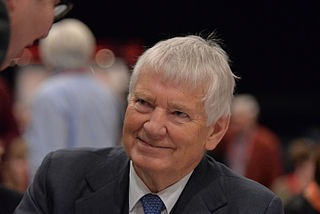A Quote by Hillary Clinton
We know that much of the training and the direction for terrorists comes from Pakistan and the border area with Afghanistan
Quote Topics
Related Quotes
During the 19th century, Britain fought two wars in unsuccessful attempts to subjugate the Afghans. When Britain finally drew a border between India and Afghanistan in 1893, Pashtun tribes in southern Afghanistan were cut off from related tribes across the border in what was then India and is now Pakistan.
I believed Afghanistan was always going to be hard. It's the fifth poorest country in the world. And when you fly over it, you realize that there's not much there. And, of course, it has the problem, too, of being on that border with Pakistan in basically an ungoverned region that has given the terrorists a staging ground. So it's a very difficult place. But I do believe that the mission there can succeed if success is defined as helping the Afghans to prevent the Taliban from being an existential threat to the Afghan government.
We're here so that Afghanistan does not once again become a sanctuary for transnational extremists the way it was when al-Qaeda planned the 9/11 attacks in the Kandahar area, conducted the initial training for the attackers in training camps in Afghanistan before they moved on to Germany and then to U.S. flight schools.
Some Pakistanis fought for the Taliban. Pakistani extremist groups provided infrastructural support to Al Qaeda. There was a coming and going of Al Qaeda militants and leaders between Afghanistan and Pakistan for several years. All that has really happened is that Al Qaeda has escaped from Afghanistan come into Pakistan, got in touch with their contacts and friends in these extremist groups, which then provided them with safe houses, cars, and not just in the border areas but also in the cities. Rooting out Al Qaeda in Pakistan now is where the main battle is being fought.
Pakistan is alarmed by the rising Indian influence in Afghanistan, and fears that an Afghanistan cleansed of the Taliban would be an Indian client state, thus sandwiching Pakistan between two hostile countries. The paranoia of Pakistan about India's supposed dark machinations should never be underestimated.
If Afghan soldiers continue to kill American soldiers as is happening these days, it can hardly be assumed that they will stay in Afghanistan in the long term. And what role are they to play? There will not be enough soldiers to ensure the security of the country. But will the US still be permitted to kill terrorists in Afghanistan and Pakistan with un-manned drones? That could worsen the situation in the neighboring states and they could view Afghanistan as a threat.
From our side, from our part as government, we have two missions: the first one is to fight those terrorists to liberate that area [eastern part of Aleppo] and the civilians from those terrorists, and at the same time to try to find a solution to evacuate that area from those terrorists if they accept, let's say, what you call it reconciliation option, in which they either give up their armaments for amnesty, or they leave that area.

































